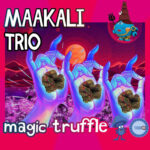OCD: A Global Issue
Obsessive Compulsive Disorder (OCD) is a condition that affects millions of people globally. In fact, in a recent study it was found that 1 in 40 Americans will meet the criteria for diagnosis of OCD at one point in their lives. This finding implies that there are many people who suffer from OCD symptoms without meeting the full criteria. This makes the actual total of those affected much higher.
OCD is a disorder that has become prevalent in popular culture, a shorthand for neatness or attention to detail, e.g. ‘Sorry I’m just OCD about my hair/crumbs/the carpet’. This is not a true representation of OCD, which ranks among the top 20 causes of illness related disability in the world. Often it can take over sufferers’ lives.
What is defined as OCD?
OCD is defined as an anxiety disorder that takes the form of uncontrollable unwanted thoughts and feelings (obsessions). These drive people to repetitive behaviours (compulsions). OCD is diagnosed if these actions take up more than an hour of someone’s day, interferes with their social and work life, and causes them distress. The disorder seems more common today, due to much more being understood about mental health. Whereas in the past many affected may have suffered in silence, hiding their symptoms, now diagnosis and treatment is possible.
Traditional Treatments
There are a few different avenues for treating OCD, beginning with the traditional routes of therapy and/or medication. However, therapy on its own can be a long and difficult process. For those who’s OCD makes it hard for them to leave the house, it may not be an option. Medication on the other hand, (usually SSRIs) can take up to a few months to become effective. Additionally it can cause side effects such as drowsiness, insomina, nausea, reduced sex drive and more. Although these methods may work for some, for many there are issues.
Psychedelic Microdosing— A New Solution?
This is where microdosing psychedelics comes in. As in our articles about microdosing for both depression and PTSD, research into alleviating these disorders is finding its answer increasingly in psychedelic treatments. Our sense of self is controlled by a system called the default mode network (DMN). As in cases of depression, sufferers of OCD possess an overactive DMN. This causes the stress that manifests as recurring negative thoughts. Psilocybin and other psychedelics loosen our connection with the DMN. Psychedelics in larger doses can cause ‘ego death’, but when microdosing, it is more of a case of ego ‘dissociation’. This dissociation means that it becomes possible to step outside of ingrained behaviors and routines, making it easier to reset them.
Many people who have tried microdosing for OCD say that it was only after being able to dissociate from their overactive DMN, that they began to be able to put their therapist’s advice into action. That is one of the many benefits of microdosing— it helps you to learn to manage your condition, rather than numb you to the realities, which traditional medications do.
Others benefits of microdosing for OCD:
- Results seen quickly— traditional methods of treatment can take months to show results. Often, with microdosing, improvements are noted within a week.
- Little to no side-effects— Unlike antidepressants such as SSRIs which are often used to treat OCD, microdosing psilocybin has minimal to non-existent side effects.
- More sustainable in the long term— unlike traditional OCD treatments which are daily or weekly, the effects of psilocybin can be felt up to 5 weeks after. This, coupled with lack of side effects means it is a viable long term treatment option.
Psychedelic research shows effective and sustainable results for swathes of different conditions from anxiety and depression, to addiction and dependency issues. On that note, here’s a little ‘how to’!
Our Recommended Microdose Method
Currently there are no official medical guidelines on a microdosing routine. However, there are many researchers who have established methods and tips on how they believe is best to do it. We recommend the Fadiman Method, a system developed by Dr James Fadiman. This consists of taking a small dose (usually 1g) of magic truffles once every three days and monitoring the effects. This three day method gives you the benefits of psychedelics without being overwhelming. The ideal way to do this is with our microdosing strips.
While we hope this article has been informative and inspiring, it is important to remember that everybody is different, and will therefore respond differently to treatments. No method is a magic cure-all, there is also a lot of inner and psychic work involved. However, along with maintaining other forms of treatment— such as therapy, mindfulness, healthy living and good relationships etc— microdosing can help you on your way.





